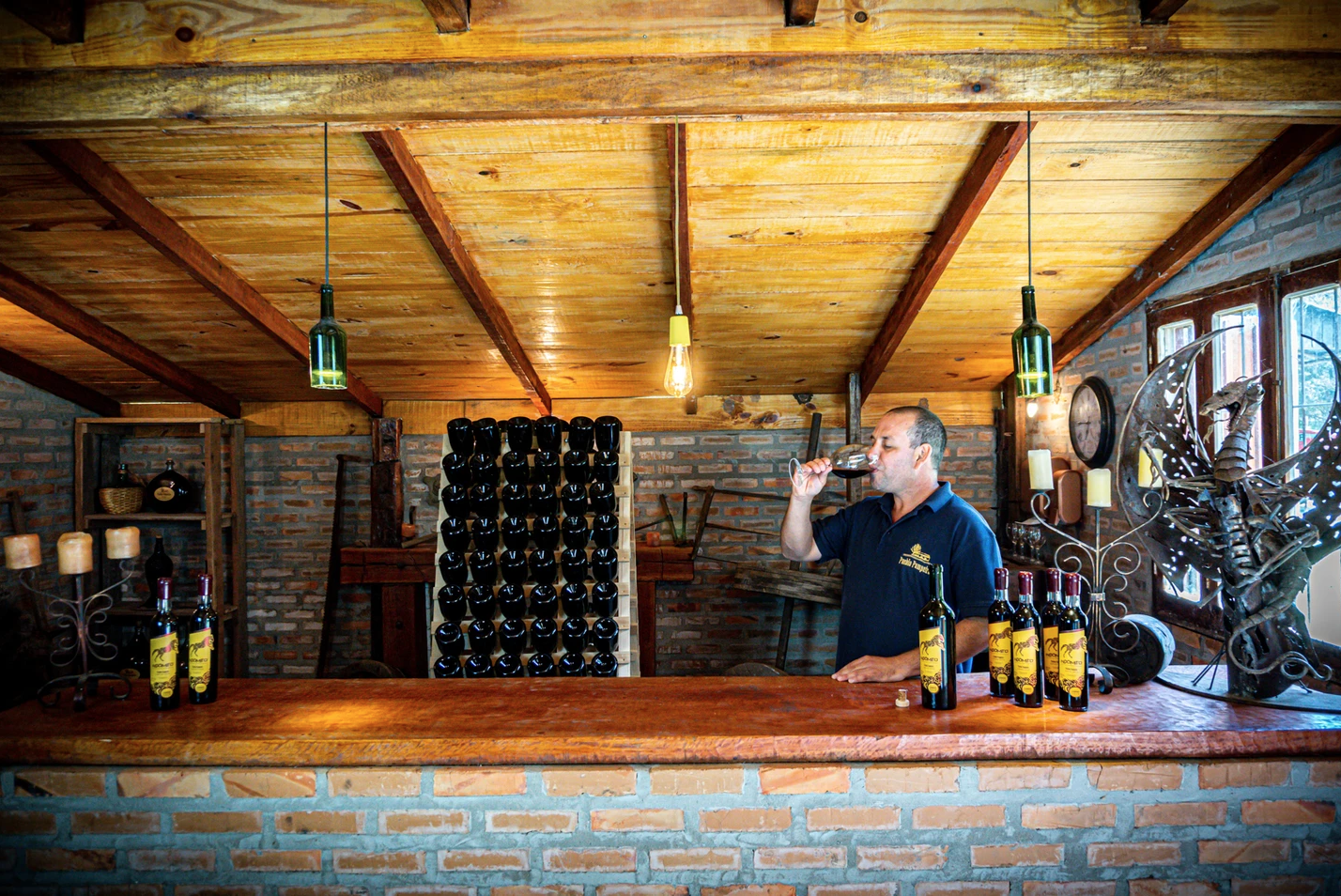
There are many companies that are inclined towards responsibility in promoting environmental sustainability in our region, which is why they have embarked on significant work to measure and understand their carbon footprint. This proactive step reflects these companies’ commitment to corporate responsibility and their fundamental role in building a more sustainable future.
Following these principles during the month of December, two new companies in Uruguay began measuring their Carbon Footprint together with ALPA. These are Dambo, a family business located in the north of the neighboring country, and the Pueblo Pampeiro winery located on the border between Brazil and Uruguay, made up of members of both nationalities. This is not the first regional experience in collaboration with ALPA, such are the cases in Panama, Paraguay or Nicaragua.
Dambo, named in honor of its founder and director, Claudio Escosteguy Damboriarena, is a company that has prospered for 30 years in the agriculture and livestock sectors, specializing mainly in the production of rice, mostly for export. With a family approach, they carry out their crops in a natural environment, guided by the principles of sustainability and care for people. In line with these fundamentals, they have decided to evaluate their environmental impact, starting with the measurement of their carbon footprint.
Cintia Lee Martínez, administrative manager at Dambo, recognizes the importance of assuming environmental responsibility. As an integral part of their ESG strategy, they have decided to voluntarily undertake the measurement of their carbon footprint. Although the company has not received a specific demand, it understands that the challenges it faces in the rice sector are linked to climate change. These challenges include water management and variability in weather patterns, prompting them to adopt more sustainable agricultural practices.
Environmental sustainability has become an increasingly common practice in its sector, and the measurement of the carbon footprint is becoming increasingly important in this area, responding to the demand for responsible business practices, especially considering that its production is intended for export. Dambo believes that measurement is a continuous process and not a one-time process to generate actions that improve both its practices and product quality.
“We consider it crucial to re-measure in the future to evaluate the impact of our initiatives and adjust our strategies as necessary. We believe that just like quality, it is a continuous process of improvement.” Cynthia Lee Martinez.
Pueblo Pampeiro, for its part, is a small artisanal winery located in Vila Pampeiro, a Brazilian town located a few kilometers from the border with Uruguay. The company was founded by two Uruguayan-Brazilian couples where Cintia Lee Martinez is a partner. They make this cultural mix one of their main characteristics, and their value proposition is to offer “remarkable experiences with unusual products.” Their determination to look for new biological alternatives to work with grapes led them to produce the first 100% organic wine in 2021.
The winery has decided to voluntarily measure its carbon footprint, driven by the need to understand and reduce its impact on climate change, thus promoting sustainable production practices. At the same time, in the wine sector, linked to the production of food and natural goods, it is becoming increasingly common to carry out carbon footprint measurements. Cintia, who plays a key role in defining the Strategy and Innovation in both companies, recognizes the growing importance of sustainability in the aforementioned productive sector and establishes connections with other actors in Vila Pampeiro:
«Pueblo Pampeiro operates in the rural tourism, horse breeding, livestock and food sectors. Therefore, it is crucial to measure the carbon footprint in these sectors due to their direct impact on land, water and biodiversity. “Livestock production often involves significant greenhouse gas emissions.”

In both companies, they recognize that the decision to measure their carbon footprint with ALPA arises from recommendations within the business community committed to sustainability. However, what ultimately had a decisive influence was the idea of sharing and collaborating with organizations that uphold and share the same values, and that can offer a rigorous and precise evaluation to address challenges such as efficient land use management, reduction of methane emissions and adaptation to changing climate conditions. In this sense, they understand that sustainable production is key to facing these challenges.
These are two more examples of companies that decide to commit to the fight against climate change. Every activity generates greenhouse gases, and the first step is to measure them: if you do not start with measurement, it will be difficult to achieve a reduction. In addition, measuring the Carbon Footprint has benefits in terms of transparency and brand image.
Source: ALPA HUELLA DE CARBONO